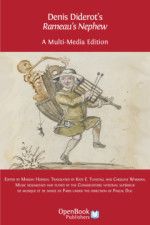On 'Making Up Numbers'
by Ekkehard Kopp, Professor Emeritus in Mathematics, University of Hull, UK.
When people meet at social events, their first question often mirrors that of the Queen: 'And what do you do?' Mathematicians tend to dread this moment, since, more often than not, the answer 'I am a mathematician' will elicit an embarrassed silence, or (worse) the response 'Oh! I was never any good at maths' or 'I always hated maths at school'.
This phenomenon might be universal, but in my experience it seems especially acute in the anglophone world. I have often wondered why this is so and how we might counteract it.
This book does not address that question directly. Instead, it presents episodes in the development of number, that most basic of mathematical concepts, in a historical framework. The thinking of mathematicians is presented in terms of their everyday reality. My purpose is to illustrate how practical considerations, as well as problem-solving, necessitated the extension of the number concept at various times, and how this was achieved.
Mathematics has a very long history. Very little of it features in traditional school or university mathematics curricula. The pressure to teach standard methods and techniques in diverse areas of the subject leaves little time for reflection on how these areas are linked or what motivates it all. Today, it is quite possible to be a successful researcher in mathematics while knowing very little of its history.
During my 37 years of teaching mathematics at university, which began in 1970, undergraduate options dealing with the history of the subject were few and far between in university mathematics departments. And, if anything, time pressures are felt even more acutely in A-level courses, I suspect.
I recall the sceptical looks of my colleagues at Hull when I proposed such a course in the 1980s. I persuaded them to indulge me. Student feedback was positive—at times more so than students' understanding of the topics we covered. It was not an 'easy option'. Participants who had sought an escape from 'technical' mathematics did not last long. Students who persevered frequently commented that the experience had led them to appreciate the links between their other modules more clearly.
This book is aimed at a somewhat different audience, one with perhaps less (or less recent) experience of abstract mathematical ideas. While I hope to persuade aspiring students of the unity of the subject, I concentrate on the conceptual development of the more familiar number systems in use today. This requires excursions into simple geometry and number theory along the way. The last three chapters deal more directly with the evolution of the axiomatic method, the foundational crisis in 'naive' set theory of a century ago, and modern attitudes to the nature of mathematical statements.
For all this, a substantial 'Mathematical Miscellany' resource is provided on the OBP website (under ‘Additional Resources’) for those wishing to refresh their basic knowledge and find out more on specific points. 'Making up Numbers' should not be mistaken for an academic treatise or textbook. It is aimed at classroom practice as a resource for teachers. It also aims to encourage interested A-level pupils and new undergraduates looking for a more holistic approach to their subject.
So the question 'why add to the literature?' (other than 'to fill a much-needed gap', as the saying goes) perhaps has three answers. My intentions can be summarised as follows:
- to bring together in one place the various extensions of the familiar 'whole numbers' that we need in many areas of science and commerce today, and to do this in a detailed but sufficiently relaxed way for the newcomer to follow;
- to highlight conceptual hurdles that were overcome (in the distant past as well as within living memory) in the creation of ever more comprehensive number systems, by giving unambiguous meaning to previously nebulous entities—including counting 'beyond the finite' and handling the elusive concept of 'infinity';
- to illustrate how the meanings that we attach to mathematical objects can change over time, leading to modern re-assessments of what is permissible, what is achievable and what might constitute mathematical 'truth' today.
I contend that we do 'make it all up'. We should do it collectively, critically, rigorously and systematically, and with sufficient humility. So far, this has mostly been the case.
This is an open access title available to read and download for free or to purchase in paperback, hardback or in various e-book editions here.



